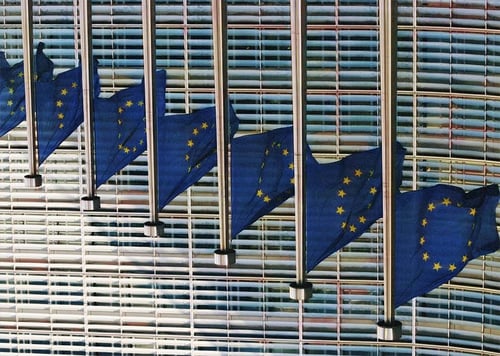
The impossible manifesto to save the EU
”EU competitiveness report” isn't the catchiest title for a groundbreaking manifesto. Still, the ideas and goals in the report are ambitious to say the least. Mario Draghi, the report's author and former European Central Bank president, proposes changes to the core of how the EU works, a shared responsibility, and annual investments of €800 billion.
This 'new' EU could not only make the continent compete with global players, but also improve the living standards of all Europeans. While the plans' most ambitious goals were already shut down by some member states, the report will likely be the European Commission's roadmap for the next five years, as Commission President Von der Leyen is eager to implement the recommendations. Plenty of reasons to take a look at the utopia.
We don't earn enough
The main issue that the report identifies is that the EU's economy is not growing fast enough. Since 2000, the disposable income of people in the United States has grown twice as much as that of people in the EU.
If the EU continues with its average productivity growth rate since 2015, we could keep our GDP constant until 2050 – not grow it, but barely sustain it.
This matters since the European welfare states depend on this growth. Simply put: less growth means less taxable money for governments and thus less money flowing towards education and healthcare but also other sectors like defence.
We don't make enough
Beyond what we can spend, we also don't produce enough. This creates dilemmas that hurt our own goals.
A good example of a dilemma is decarbonisation. The EU wants to reach net zero by 2050. Yet, when it comes to electric vehicles, the competition from China is tough to beat: state-subsidised Chinese EVs are more affordable than European EVs, yet over relying on them also hurts our own industries.
So far, the EU's strategy has been to impose high tariffs on the Chinese EVs, rather than dramatically increasing investments into our own industries to compete.
How to fix it: money
How can the EU achieve GDP growth, not just scrape by, and grow independent, competitive industries? Money, obviously, but also a pretty fundamental change to how we function.
EU member states only share some responsibilities at the EU level. Areas like trade, competition and the internal market are all regulated by Brussels. However, what is missing, according to the report, is a capital union.
Simply put: a capital union would allow the EU member states to do joint borrowing, spend money together, and share the debt together.
This would reduce reliance on private banks, stimulate the creation of start-ups, and more importantly, allow the EU to invest into a shared future.
Take energy for example. Consumer costs have skyrocketed since the EU decided to no longer buy energy from Russia following its invasion of Ukraine, and it has also gotten more expensive for European manufacturers in any industry to sustain themselves with the rising costs.
Joint borrowing could solve multiple issues at once. Not only would pan-European investments into (renewable) energy production in Europe reduce our dependence on energy imports from Russia or other providers like Qatar, but also lower consumer prices through the new subsidies.
While national governments could (and should) subsidise local industry, a pan-European investment approach would ensure that we decarbonise as a continent, and not just in wealthier, northern European countries.
There are many other examples of industries that would benefit from shared investments, shared debt, and shared responsibility. So why aren't we doing it?
The ”slow agony”
Whilst not stated in the report explicitly, the dilemma comes down to this: do we want the EU to generate more GDP-growth, share the responsibility for pan-European welfare or do we want our national governments to remain in the driver's seat?
Less than three hours after the report was published, Germany, the EU's largest economy, gave us a swift answer: no joint borrowing, no utopia.
Draghi, the author of the report put it bluntly: ”Do this or it's a slow agony”. Sharing responsibilities and dramatically increasing spending on an EU level is ambitious. While it might not seem fully feasible at this point, some might become reality soon.
Commission President Ursula von der Leyen announced her ‘Clean Industrial Deal’ to ”mirror” Draghi’s vision in policy. Time will tell how much of the utopia will become reality.